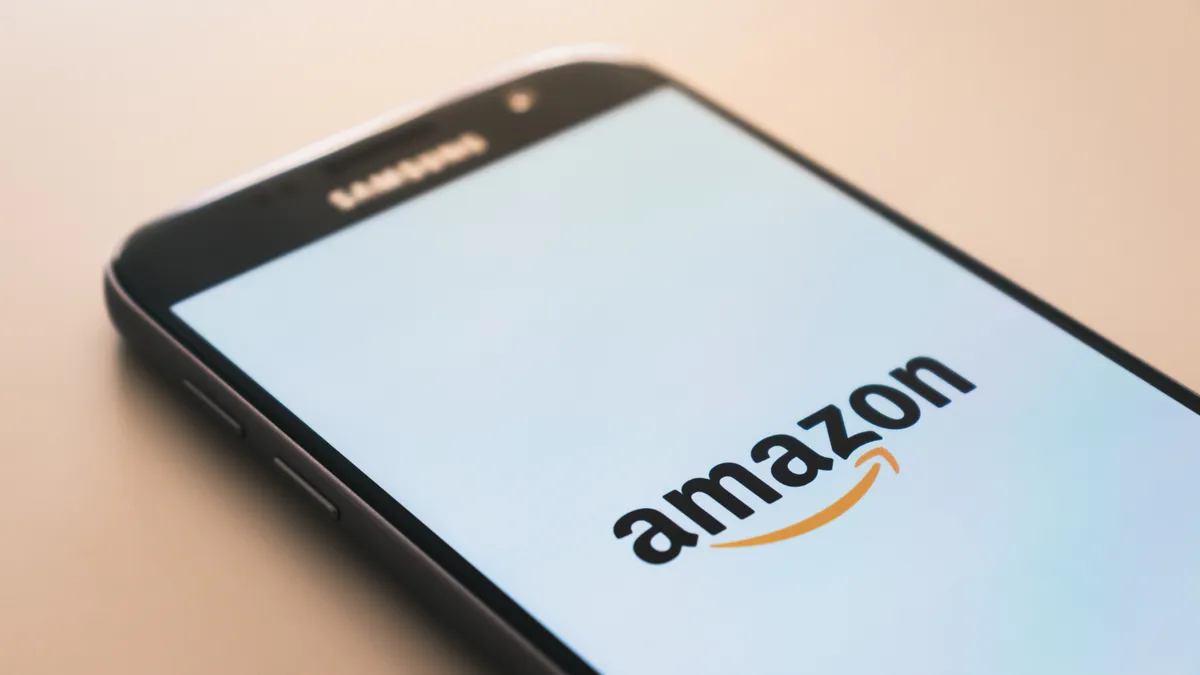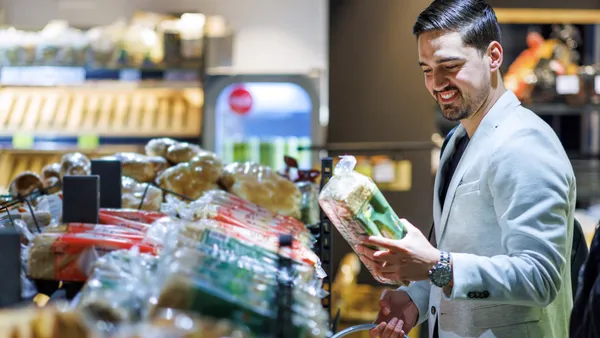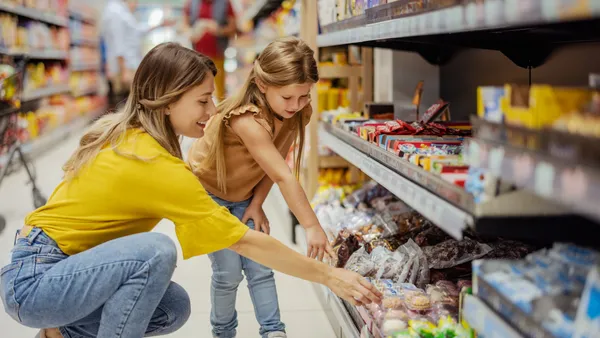Dive Brief:
- As summer comes to a close, Amazon.com is already thinking about Christmas. The online company hosted a recent holiday preview in a two-story New York City pop-up space, showing off items on eye-catching displays designed with Instagram, according to a recent Forbes article. Visitors could walk through a mock kitchen, living room and other sections featuring home items, electronics and other products Amazon believes people will want for the holidays.
- Amazon's private brands were promoted more than national brands, the report says. In particular, grocery and essentials items for the kitchen or pantry were not name brands but Amazon's house brands, including Wickedly Prime snacks, AmazonFresh coffee pods, Happy Belly eggs, Presto! paper towels, Solimo hand soap and the new Wag gourmet dry dog food.
- The pop-up tour ended with guests sampling holiday dinners that could be featured on the catering menu of Amazon's Whole Foods Market, and guests took home small Whole Foods shopping bags filled with items including the grocer's 365 Everyday Value coconut macaroons and sparkling water, according to the report. Products in the wish guide are expected to be available by late August or September, Amazon noted.
Dive Insight:
It’s no secret that Amazon.com has been working consistently to build its private labels, as this recent pop-up shows. As The New York Times has reported, the e-commerce giant has quietly been building out its private label brands, now with about 100 brands ranging from office supplies to kids clothing. As the fourth largest advertiser in the U.S. in 2017, spending an estimated $3.4 billion on U.S. advertising and promotions — up from the number eight position in 2016 — Amazon is in a perfect spot to boost sales of its private label goods, including groceries and pet food.
At least one marketing expert says this is the right move for Amazon.
"One of the key advantages of private brands for any retailer is their ability to drive customer loyalty — producing items that are exclusively available through Amazon will drive more traffic to the platform, which also benefits Amazon sellers by bringing more consumers in front of their products," One Click Retail marketing analyst Ojastro Todd told CNBC in June. "Private brand expansion is a major priority for Amazon, with new product lines being introduced across nearly every major category.”
But the company has its work cut out for it in the grocery category. As Coresight Research points out, just 2% of Amazon’s private label offerings are in food and beverage. These comprise brands of items ranging from snack foods to frozen meals and a line of premium fresh meat. Compared to grocers like Kroger and Albertsons, which have dozens of store brands and see upwards of a quarter of their volume and dollar sales in the channel, it’s clear the e-tailer lags in an increasingly important segment of the food business.
Whole Food's 365 Everyday Value brand is now the number two best-selling private label brand on Amazon, just behind AmazonBasics. The food brand earned $11 million in the few months it was available in 2017 on the retailer's website. But Amazon needs to build its own brands beyond what Whole Foods offers in order to be successful. One of its top grocery brands, Happy Belly, fell from the number 5 snack brand a year ago to number 16, indicating it's having difficulty gaining traction against name brand competition.
The pop-up seems like a smart way for Amazon to provide space for customers to actually see and feel the items Amazon hopes to promote for the holidays, and doing it early gets the products in people’s minds before they consider putting other options in their digital grocery carts. The novelty of makeshift rooms and a chance to sample holiday foods — new experiences that can be shared on social media — is another smart way to grab attention.
As Amazon continues to look for ways to promote and sell its own private label products, it will be interesting to see the impact the drive has on other vendors hoping for a place at the table.












